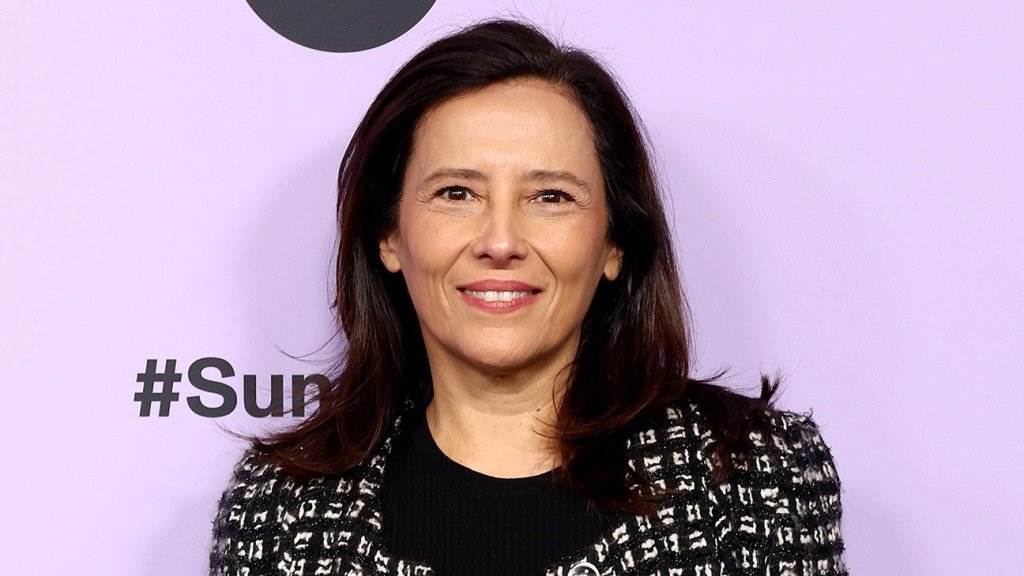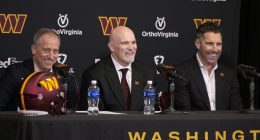
Any way you look at it, Joana Vicente had a difficult job.
When she assumed the post of CEO of the Sundance Institute in late 2021, the world was a year into a pandemic that made indie filmmaking, festival planning and fundraising all challenging. During her tenure, she had to walk a careful line between the wants and needs of the entertainment industry and the realities of running a nonprofit that had to capitalize on new, potentially profitable revenue generators like online offerings.
But after a little over two years, these problems are no longer Vicente’s to face, with the surprise announcement last week that she would be stepping down from her post.
Sundance insiders describe Vicente’s departure as amicable and preplanned, with her memo to staff noting, “I have decided that it is time to explore new opportunities and adventures.” But it caught festival regulars and industry insiders off guard. The day before Vicente’s departure, Eugene Hernandez, who just finished up his first fest as director, was in California wine country, attending the Sonoma International Film Festival, where he was seen taking a long series of calls. After the news broke, he was hounded with questions by festivalgoers.
Just two months ago, Vincente appeared eager to tackle the existential threats facing Sundance and the indie space head on. During January’s 2024 festival, she gathered top players from the indie film community — including studio executives, sales agents and talent reps for a conversation billed as a “think tank.”
Attendees broke off into groups to tackle discussion topics affecting the vulnerable indie film ecosystem, like distribution and financing. Two in attendance who spoke to The Hollywood Reporter noted that the meeting was appreciated and sparked interesting conversations, but said they were surprised that the discussions weren’t focused on the festival itself, which, like Hollywood, is facing its own set of uncertainties, including slumping attendance and rumors of a move out of Park City, with the fest in negotiations to renew its contract.
The Institute and 40-year-old Sundance Film Festival has been pillar of American independent filmmaking for decades, but in the past couple of years, it has been trying to find its new place within the mercurial 2020s Hollywood ecosystem. (Last year, Sundance laid off layoff 11 staffers amid challenges.)
When Vicente arrived after a years co-heading The Toronto International Film Festival, Sundance was coming off a 2021 fest that migrated online due to COVID. The fest said the seven-day event reached a total audience nearly three times larger than its the typical 11-day Utah edition. (Though it certainly had less cachet than an in-person fest.) Seeking to capitalize on this apparent success, Sundance announced a hybrid edition for 2022. The fest said it would make films available online shortly after their in-person premieres, but after complaints from Hollywood, Sundance brass agreed to put a longer buffer between in-person and online premieres, though ultimately it became a moot point, with COVID spikes forcing the fest to go all virtual.
By 2023, Sundance under Vicente was still experimenting with splitting the difference between the more consumer-friendly online offerings and the industry-preferred in-person experience, which is believed to bolster potential film sales. At this fest, the first in-person edition following the pandemic, 86,000 people attended in person, according to Sundance, down from January 2020, which topped 116,000 people. (It is worthwhile to note that online festival offerings have been praised as being more affordable and have been lauded by disability advocacy groups, with Park City difficult to navigate for those with mobility issues and other disabilities.)
At the continued behest of industry veterans, Sundance pushed its digital offerings for the 2024 fest back even further, with films not streaming online until the final five days of the festival, a time when the majority of buyers would have already left Park City. While Sundance has not released festival attendance for this year, lodging was expected to be up year-over-year ahead of the fest. And the market, the first post-strikes, was healthy for sales of both star-studded and smaller efforts.
During her tenure, Vicente did not endear herself to some powerful industry players and Sundance veterans with her continued push for online offerings, which they argued hurt both film acquisitions and attendance. Still, softer attendance can’t be solely blamed on fest formatting.
Entertainment companies have cut travel budgets in recent years as part of belt-tightening in Hollywood. Between accommodations, travel and passes, Sundance is seen as too expensive for even industry attendees with expense accounts, let alone indie filmmakers who have sunk savings into passion projects screening at the festival.
Amanda Kelso is now serving as acting CEO, with Vicente staying on until June to help with the transition. Prior to Vicente’s hiring, Kelso previously served as acting CEO after Keri Putnam stepped down following a decade of service. Kelso, a former Instagram executive, is seen as a capable businessperson, and while a search for a new CEO is a possibility, it is not imminent with Kelso considered a solid steward for charting Sundance’s immediate future. She previously held posts at Google and top ad firms like Goodby Silverstein, and also has a background in film and television production. (An early job was as a production assistant on Mister Rogers’ Neighborhood.)
Of course, Vicente’s departure comes at a time when the larger entertainment industry is dealing with its own series of challenges — contraction, continued labor unrest, the reality of fewer productions, an unsteady box office and a variety of other woes. The questions facing Sundance’s top leadership, including the new CEO, are ones of relevance and necessity.
During a live podcast taping of Ringer podcast The Town at this year’s Sundance, Vicente herself assessed that Sundance was “spending time doing a lot of strategic thinking of where can we be most relevant. What’s the role of the festival? What’s the role of the institute? How do we evolve in a really ever-changing industry around us?”
Read More: World News | Entertainment News | Celeb News
Hollywood






